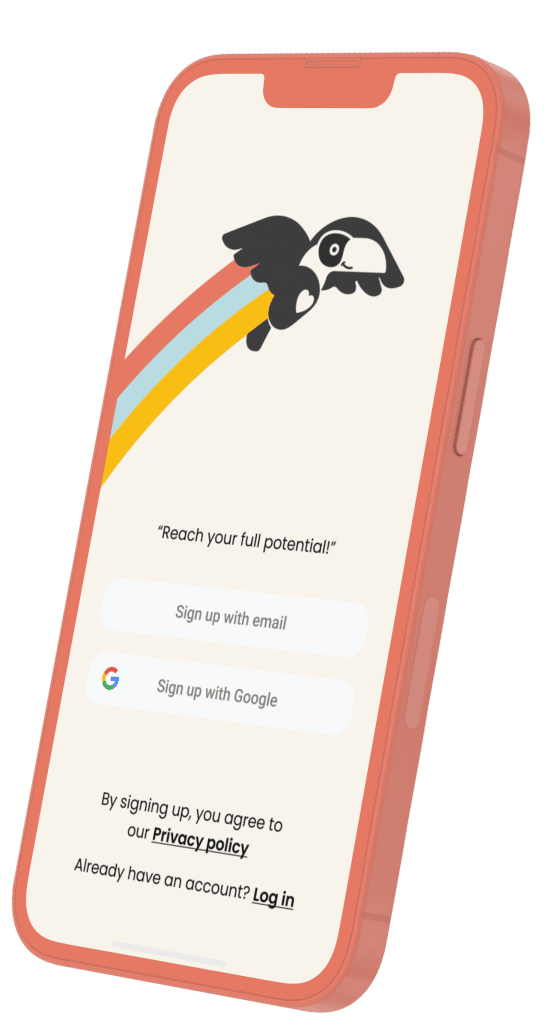So you loved learning new languages: German at university, spent 6 months in Spain, and watch TV shows just in English… but how do you put those language skills into your CV? Is there a right way of describing your skill in the resume? Yes, there is! Generally, 90% of the EU population knows at least one foreign language, that’s why it’s crucial to dive into the correct language proficiency levels, formatting, designing, and many more. At first sight, it might seem an easy job, but our full guide will reveal how many things you should actually consider.
Where to put your language skills?
After creating the perfect resume for the startup world, you may wonder where would your language skills actually fit. You’ve probably spent quite some time acquiring a specific language, so be proud of it! Give it enough spotlight by placing your language skills in the “Skill” section, where you also include all the other skills you gained, like specific marketing or coding skills. You can also list them after the core resume parts (education and working experience).
One might think: “Should I dedicate a whole section just to the list of languages?!”. Our answer is: definitely! If you phrase your skills in the way they should be phrased, the “simple list” will occupy way more space than you would imagine. When one of your biggest strengths is learning languages fast, displaying them correctly is crucial to give recruiters even more reasons to hire you instead of someone else.
How to list your skills?
The list shouldn’t be random. Don’t use alphabetical order or the most common languages at the beginning. Instead, order your language skills depending on your proficiency level. Start with the most proficient language, and just then list up other language skills in descending order.
How do you decide, which language proficiency level to use?
To have a proper list of your language skills, you have to focus on two main aspects. First, the wording in your resume is everything. You need to spend time and energy on finding the perfect alternatives you’d like to use to describe your language level:
- Advanced: native, fluent, superior, proficient, highly developed, mother tongue, distinguished
- Mid-range: professional, advanced, conversational, competent, upper-intermediate
- Beginner: elementary, beginner, basic, low-intermediate, novice, limited working proficiency
If you use this as a base for ranking your skills, one concern may occur. How can your CV exactly explain to the hiring manager, what you meant by “Intermediate English” and “Advanced German”? Can you understand everything, read everything, express yourself fluently, and even explain the structure of the language to non-speakers?
What language framework to use?
That’s why the second aspect you should consider is to define, what language framework you plan to use. The easiest way to prove your language level in Europe is to include the Common European Framework of Reference for Languages (CEFR) framework. In line with the guidelines, you’ll get a certification from A1 (basic users) to C2 (proficient users) examining listening, speaking, reading, and writing abilities. If you are not sure about your level, you can complete an online test, which will evaluate your knowledge and will give you your respective language proficiency level. For example, here you can assess your level of English. Don’t forget, that these frameworks are always territorial. If you apply to the US for example, you need to consider a different language framework, called ILR. By listing up your language skills in the following structure, you should be good to go!
Should I include language certificates?
Yes! A certificate shows that the hiring manager doesn’t need to have second thoughts about your knowledge. But you don’t have enough space to include it in the ‘general’ skill section, right? Add a “(Language) Certificate” section to the end of your CV, so among others, you can list these certificates as well as enclose them with your CV.
PRO TIPS – what not to do
- Don’t write time frames. Don’t include in your resume the time frame you’ve been using or studying the language. Sometimes living for 6 months somewhere develops your language skills more. Studying a language for 4 years may sound more impressive, but having studied it for 2 hours/week won’t necessarily have as much of an impact.
- Don’t forget all the languages you speak. Don’t forget to mention all the languages you speak! It can easily happen, that you consider your mother tongue so obvious, that you forget to include it. You perhaps got used to sending out your resume in English – which many people do to apply for international startup jobs. If you decide to apply in your home country (with an English resume), the hiring manager can easily assume that you don’t speak the local language at all and this can result in a fast rejection. Don’t think this is just theory – I once got rejected because of this very specific reason. The job seemed perfect for me and I didn’t understand why I didn’t get hired, or at least to the virtual assessment center. After I asked for feedback, the recruiter told me that they considered me but knowing the local language was very important to interact with customers. All in all, so much time passed by until we could clarify, that the company already hired someone else… bad luck for me!
- Don’t lie. This is always a big no-no but especially lies within the area of language proficiencies that can get discovered very fast. If you don’t use the frameworks wisely and realistically, you might have some very awkward situations. Just imagine, that you have to give an answer to “Why should we hire you?”, or “What are your biggest weaknesses?” when the hiring manager switches to another language or when you have to deal with a highly important client in the future… Not pleasant!
- Don’t mix frameworks. If you apply for Europe, make sure you use the CEFR for describing all of your language skills, don’t involve ILR which is usual for the US market.
- And last: don’t forget to also include your languages on LinkedIn. LinkedIn is a really powerful platform and recruiters spend a lot of time looking for candidates also there. If you want to make sure that recruiters can find you, leverage the platform and use all the tricks it has!
Conclusion
Describing language skills on your resume sounds easy, but there are many things to consider – some will surprise you!
- You should: place your skills right, list them up in the right order, use the appropriate framework, and include certificates to showcase your language proficiency.
- You should not: write the time frame, lie about your language level on your cv, forget about your mother tongue and mix frameworks.
You worked hard to learn these languages, so bring out most of them! And when you’re ready, don’t forget to professionalize your CV and cover letter.
Want to learn more about how AI is going to solve our language barrier? read on about the exciting future of AI today!



